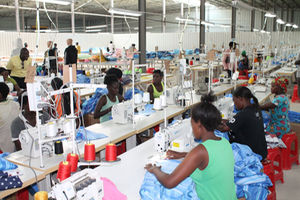
Mr Charles Onyango-Obbo
The reading of the 2024/24 budget last week renewed, as it always does, the question of what Uganda and other East African countries need to do to become rich.
We won’t become rich until we get rid of its most prominent symptom, which is most evident on the weekends and holidays: the phenomenon of the biggest and most expensive cars being driven from Kampala to upcountry. The day we get to a stage where on Friday evenings and Saturday moneyed people from upcountry are checking into hotels like Serena and Four Points by Sheraton and taking all the rooms, we will have arrived.
Apart from a few countries like Morocco, and South Africa, in most of Africa, all the action is in one political or economic capital. And they usually account for anything between 60 and 80 percent of the economy.
This inequality comes first, not from material things, but talent. Kampala is not so much richer than the rest of Uganda because everyone invests most of their income there. It is ahead because most of the country’s best educated and talented sink their intellectual capital there.
In March I had a chat with a distinguished diplomat who in the late 1990s was sent to Japan as the ambassador of his country, a restless African country with big ambitions. One of his instructions was to visit giant car maker Toyota and make friends. He did.
He was slightly disappointed. First, its manufacturing headquarters wasn’t in Tokyo, but in Aichi, 300 kilometres away. When he got there, he had expected the Toyota factory to be a sprawling affair extending as far as the eye could see. It wasn’t. It was a fairly simple affair. At that time, robots and artificial intelligence hadn’t yet crashed the party. The Toyota folks explained to him that its factories are a network of small to medium product and part makers scattered in all regions of Japan, and what they do is put the parts together so they don’t have to be massive.
Economies like the US, China, UK, France, South Korea, Germany, and other leading industrialised nations are much like that. We need to have centres of excellence spread around the country, turning their ingenuity into precious goods and money, and we will climb to the top echelon of a middle-income economy and beyond.
How might we do that? Mbale offers a pointer. Almost plonk in the middle of the town is the metal work zone. It’s crazy. The drivers who make their way in and out are definitely among the very best in the country. The metal fabrications they make there are out of this world. From there, you drive further into the Industrial Area, where you will find some of the best woodwork in both Uganda and East Africa.
These are the only craftsmen who deserve to sit at the same table with the chaps in Katwe, Bwaise, and Kawempe, yet their genius goes largely unremarked in the country. The plan should be to unlock their talent and work and take it to the world.
If I were the Big Man in government, I would break down the rest of the buildings in downtown Mbale create an organised metalwork park, and install high-end production equipment. But it wouldn’t be free. I would demand they create production cooperatives, then I would get several billion shillings and put it in Ugandan-owned banks like the Uganda Development Bank and Centenary Bank to lend to them at low interest.
I would do the same for the strategically placed towns upcountry like Ishaka, Arua, Lira, Busia, and Masaka, in all about eight. Then I would go to the nearest border point and establish an associated tax-free export zone for these production centres, which I would expand to include one dedicated to woodwork, and to food.
But it would need more than that to spark and keep talent in these up-country towns. The main clever trick is housing. Today, with 3D it is easy to print several 3,000 to 4,000-square-foot homes per month with little labour and at extremely low prices. I would set up a 3D house printing unit in each of the regions, doing about 15 units a month. In a year, that is 180 new houses, that would be sold, not rented, to the workers and entrepreneurs being targeted. Again, remove the politics and inefficiencies, and channel the mortgage money (no more than 5 percent) through banks.
Then I would sit back, and watch great things happen. A new coolish middle class would emerge upcountry too. Some things seem small but are important. It does great things to the spirit of a town if it has smart, beautiful and handsome young people with some money on its streets. If all of them are in Kampala, you will never have a rich country.
Mr Onyango-Obbo is a journalist, writer and curator of the “Wall of Great Africans”.
Twitter@cobbo3





